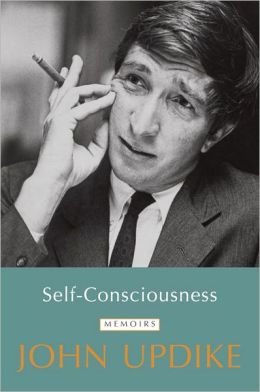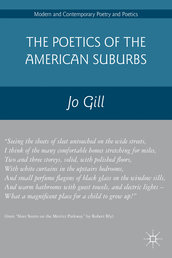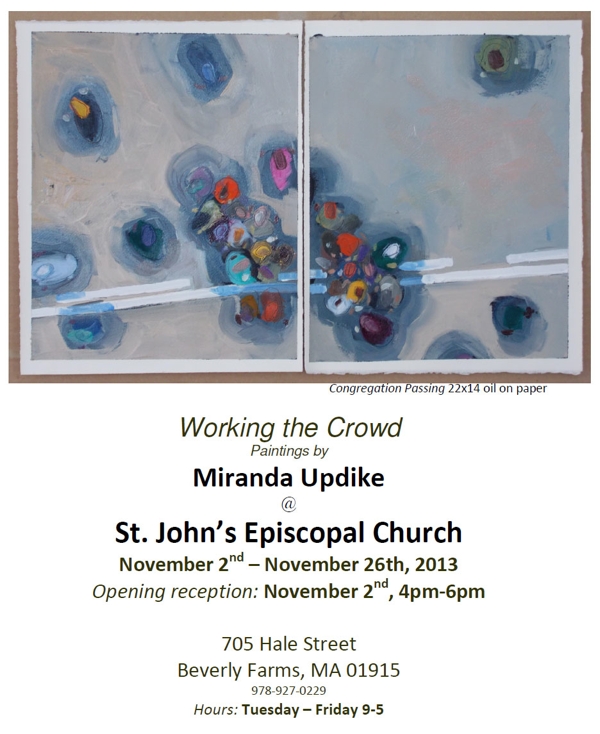Monthly Archives: October 2013
Brain Pickings compiles quotes “on Writing and Death”
 Maria Popova has compiled a number of quotes for an article on “John Updike on Writing and Death,” which was published online at Brain Pickings, much of it drawn from Updike’s memoir, Self-Consciousness. There are some interesting juxtapositions and conclusions here—like for Updike, “work—especially a writer’s work—serves the same purpose as religion (which, as Mark Twain famously grumbled, is chiefly an anchor of human ego.”
Maria Popova has compiled a number of quotes for an article on “John Updike on Writing and Death,” which was published online at Brain Pickings, much of it drawn from Updike’s memoir, Self-Consciousness. There are some interesting juxtapositions and conclusions here—like for Updike, “work—especially a writer’s work—serves the same purpose as religion (which, as Mark Twain famously grumbled, is chiefly an anchor of human ego.”
LOA Collected Stories reviews and readings
 Reviews and responses to the Library of America publication of John Updike: The Collected Stories are starting to appear. We’ll add to this list as entries become known to us.
Reviews and responses to the Library of America publication of John Updike: The Collected Stories are starting to appear. We’ll add to this list as entries become known to us.
“Tag Archives: John Updike: The Collected Stories.” Andrew Keyser. Portland (Oregon) Book Review. September 10, 2013. “Updike is one of those rare authors that appeals to a diverse group of people. Lovers of American [sic] will fit right into these stories, recognizing the daily joys and struggles of small-town America. Philosophers will find wisdom in over forty years of storytelling, and those that just want a good story will have no trouble finding many in these nearly two thousand pages.”
“My Hitherto Inadequately Superficial World; Reading John Updike’s stories.” Scott Dill. Books & Culture (Christianity Today). October 2013. “For one who comes to Updike looking for an existential defense of Christianity, as I did when I first read him, these stories may surprise in their essential playfulness.”
“John Updike: The Collected Stories.” Trevor. The Mookse and the Gripes. October 3, 2013. “Trevor” begins with a disclaimer—”I simply haven’t read them all or nearly enough to write a proper ‘review'”—but adds, “Still, I heartily recommend this collection. I want interested readers to know about this set, a set filled with notes and other supplemental material to really dive deeply into Updike’s extensive work across more than half a century.”
“Reading the John Updike stories: ‘Dentistry and Doubt.'” Jim Higgins. JSOnline (Milwaukee Journal Sentinel). October 16, 2013. In this blog entry Higgins notes that “‘Dentistry and Doubt’ is the first story in this collection to remind us that Updike is not only a chronicler of lust, but one of Christian faith and doubt as well.”
“Teller of Tales; The Definitive Updike, in two volumes.” William H. Pritchard. The Weekly Standard Book Review (Washington, D.C.). Vol. 19:7. October 21, 2013. Pritchard writes, “Since his death, my impression is that his reputation has slipped a bit, as if reading fiction about discontent, sorrow, and fear is not to play for high enough stakes.”
“The Curious Paradox of John Updike.” James Santel. The Millions. October 24, 2013. Santel writes that “almost five years after his death, Updike’s critics often seem to outweigh his admirers” and says, “Having read nearly 200 of Updike’s stories in rapid succession, I’m more sympathetic to the critics’ point of view than I had been. While not willing to go as far as Franzen, who argues that Updike was ‘wasting’ his ‘tremendous, Nabokov-level talent,’ I was surprised by how many of Updike’s stories impressed me while I read them, and how few left an impression. . . . The curious paradox of Updike is that he made art into a craft, but only rarely did he transcend craft to achieve art.”
“John Updike Gives the Mundane Its Beautiful Due.” Jeff Tompkins. PopMatters. November 14, 2013. “Any collection of 186 stories by the same author is bound to have its share of duds. Updike was such a pro that even his minor efforts maintain the same meticulous finish; the misfires usually result from his experimenting with form or subject matter, and offer the inherent interest of a major talent testing its boundaries.”
Member publications delve into new areas
 Member Jo Gill, Associate Professor & Director of Education: English at the University of Exeter (UK) has featured Updike prominently in her new book, The Poetics of the American Suburbs (New York: Palgrave, 2013). It includes a discussion of a number of Updike poems, among them “My Children at the Dump,” “The One-Year-Old,” “Scenic,” “Shillington,” “Sleepless in Scarsdale,” and “Suburban Madrigal.”
Member Jo Gill, Associate Professor & Director of Education: English at the University of Exeter (UK) has featured Updike prominently in her new book, The Poetics of the American Suburbs (New York: Palgrave, 2013). It includes a discussion of a number of Updike poems, among them “My Children at the Dump,” “The One-Year-Old,” “Scenic,” “Shillington,” “Sleepless in Scarsdale,” and “Suburban Madrigal.”
Here’s the link to the Macmillan website, which calls it “the first book to consider the rich body of poetry that emerged from and helped to shape the post-war American suburbs. Jo Gill discusses the work of forty or more writers—some well-known, such as Anne Sexton and Langston Hughes, others not primarily known through their poetry such as John Updike, and some who were best-sellers in their own time but have since largely been forgotten such as Phyllis McGinley. Combining detailed textual and archival study with insights drawn from other disciplines, the book offers a new perspective on post-war suburbia and on the broader field of twentieth-century American literature.”
Member Scott Dill has an essay in the recent issue of Critique: Studies in Contemporary Fiction (54:4) titled “Affection for the Affected World: Updike on Emotion, Sense, and Style.” The full essay can be viewed here.

